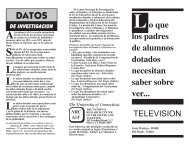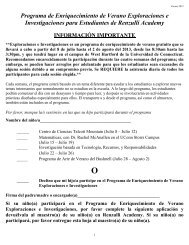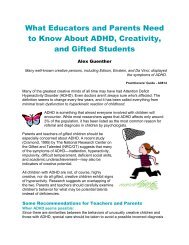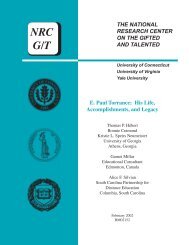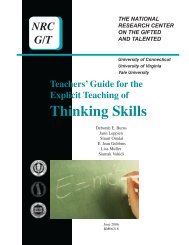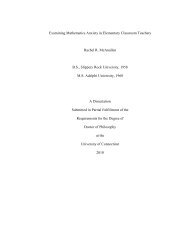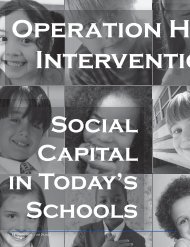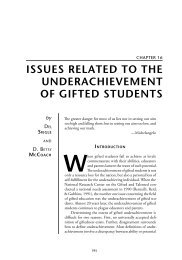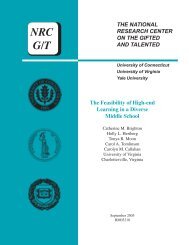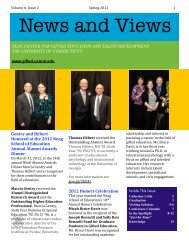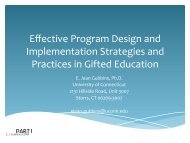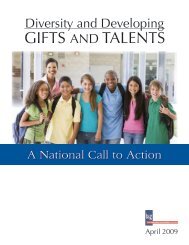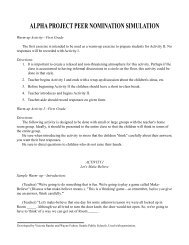Giftedness and High School Dropouts - Neag Center for Gifted ...
Giftedness and High School Dropouts - Neag Center for Gifted ...
Giftedness and High School Dropouts - Neag Center for Gifted ...
You also want an ePaper? Increase the reach of your titles
YUMPU automatically turns print PDFs into web optimized ePapers that Google loves.
14<br />
Other studies have focused on school-related factors, such as the failure of the<br />
school to address the needs of gifted students <strong>and</strong> their learning styles (Robertson, 1991).<br />
French (1969) reported that the reasons high ability dropouts give <strong>for</strong> withdrawing from<br />
school are similar to those of average dropouts; <strong>for</strong> example, disliking school, wanting to<br />
get a job, or getting married. Lajoie <strong>and</strong> Shore (1981) indicated that school pressures <strong>for</strong><br />
con<strong>for</strong>mity, rather than a lack of interest in school, might create a stumbling block <strong>for</strong> the<br />
potential dropout. Robertson (1991) indicated that schools fail to present curricula that<br />
address the appropriate learning styles of gifted students. Because gifted students often<br />
think in a holistic way, they tend to dislike routine <strong>and</strong> rote tasks. As proof, she indicated<br />
that many gifted scientists, writers, <strong>and</strong> artists dropped out of elementary <strong>and</strong> secondary<br />
school. She stated:<br />
<strong>Gifted</strong> children are qualitatively different from others, <strong>and</strong> those who are potential<br />
dropouts are qualitatively different from other gifted children. . . . An important<br />
dimension of the culture of a school is respect <strong>for</strong> self, <strong>for</strong> others, <strong>and</strong> <strong>for</strong> the<br />
school environment. . . . Also, both gifted <strong>and</strong> at-risk students are clear when they<br />
discuss the irrelevance of the curriculum. . . . It appears that the gifted potential<br />
dropout needs the following: an experiential learning process, individual projects<br />
of the students' own choice, challenging <strong>and</strong> difficult problems within the real<br />
world, some competition <strong>and</strong> challenge from others, the ability to make decisions<br />
<strong>for</strong> self regarding what will be learned <strong>and</strong> how it will be learned. <strong>Gifted</strong> students<br />
who may drop out of school need to work with a teacher who models a consultant<br />
role or works as a smart colleague in a mentor relationship. (pp. 69-70)



